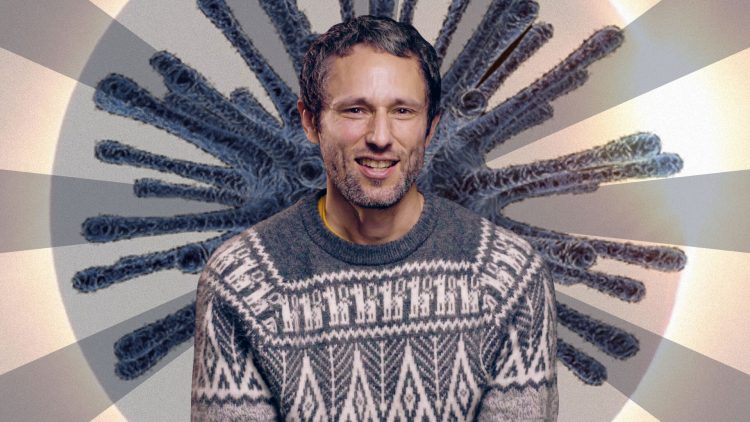Charles Eisenstein: A Visionary Thinker for a New Paradigm

Charles Eisenstein is an influential author, public speaker, and thought leader whose work spans economics, environmentalism, spirituality, and social change. He is best known for his books “Sacred Economics” and “The More Beautiful World Our Hearts Know Is Possible,” which have garnered a significant following and positioned him as a central figure in the movement towards a more holistic and interconnected way of living.
Early Life and Education
Born in 1967, Charles Eisenstein grew up in a typical American suburban environment. He attended Yale University, where he graduated with a degree in Mathematics and Philosophy in 1989. His academic background provided a strong foundation for his later work, which often integrates rigorous intellectual analysis with profound spiritual insights.
Career Beginnings
After college, Eisenstein spent several years in Taiwan, where he taught English and studied Chinese language and philosophy. This period was formative, exposing him to Eastern philosophical traditions that would deeply influence his later work. His immersion in a different cultural and philosophical context helped him see the limitations of Western thought, particularly its emphasis on individualism and materialism.
Sacred Economics
One of Eisenstein’s most significant contributions is his book “Sacred Economics,” published in 2011. In this work, he critiques the modern economic system, highlighting how it fosters inequality, environmental destruction, and social disconnection. Eisenstein argues that our current monetary system, based on perpetual growth and interest-bearing debt, is fundamentally unsustainable.
Key Concepts in Sacred Economics
- Gift Economy: Eisenstein advocates for a shift towards a gift economy, where goods and services are given without an explicit agreement for immediate or future rewards. This concept challenges the transactional nature of modern economies and promotes a more communal and reciprocal way of living.
- Degrowth: He argues that the obsession with economic growth is driving ecological destruction and that we need to embrace a degrowth paradigm, which focuses on sustainability, well-being, and balance rather than endless expansion.
- Negative Interest: Eisenstein suggests the implementation of negative interest rates to discourage hoarding of money and encourage the circulation of wealth. This idea is rooted in historical precedents and aims to create a more equitable and sustainable economic system.
- Interbeing: A central theme in “Sacred Economics” is the concept of interbeing, the idea that all life is interconnected. This philosophical perspective encourages a sense of responsibility and care for the entire ecosystem, rather than a narrow focus on individual success.
The More Beautiful World Our Hearts Know Is Possible
In his 2013 book, “The More Beautiful World Our Hearts Know Is Possible,” Eisenstein explores the deep longing many people feel for a more connected, meaningful, and just world. He examines the narratives that shape our reality and offers a vision of how changing our stories can lead to profound societal transformation.
Key Themes in The More Beautiful World Our Hearts Know Is Possible
- Story of Separation: Eisenstein identifies the prevailing cultural narrative as the “Story of Separation,” where individuals see themselves as isolated beings in a competitive, hostile universe. This worldview underpins many of our social and environmental crises.
- Story of Interbeing: In contrast, he proposes the “Story of Interbeing,” which recognizes the interconnectedness of all life. This narrative fosters a sense of empathy, cooperation, and stewardship, paving the way for a more harmonious and sustainable world.
- Cultural Healing: Eisenstein emphasizes the need for cultural and emotional healing. He believes that addressing the deep wounds of trauma, alienation, and disconnection is essential for creating the more beautiful world we yearn for.
- Holistic Activism: He advocates for a form of activism that goes beyond protest and resistance, encouraging actions that embody the values of the world we wish to create. This approach focuses on healing, compassion, and positive vision.
Public Speaking and Workshops
Eisenstein is also a sought-after public speaker and workshop facilitator. He travels widely, sharing his ideas with diverse audiences ranging from academic institutions to grassroots movements. His talks often blend storytelling, philosophical reflection, and practical guidance, making complex ideas accessible and inspiring.
Influence and Impact
Charles Eisenstein’s work has resonated with a wide audience, from environmental activists to spiritual seekers. His critique of the dominant economic paradigm and his vision of a more interconnected world have influenced various movements, including the Transition Towns movement, which focuses on building sustainable local communities, and the Occupy Wall Street movement, which highlighted economic inequality and the need for systemic change.
Collaboration with Other Thought Leaders
Eisenstein collaborates with other influential thinkers and activists, such as Joanna Macy, a scholar of systems theory and deep ecology, and Helena Norberg-Hodge, an advocate for local economies and cultural preservation. These collaborations enrich his work and help to amplify the broader movement towards a more just and sustainable world.
Criticisms and Controversies
While Eisenstein’s ideas have garnered significant support, they have also faced criticism. Some argue that his vision is overly idealistic and impractical, given the entrenched nature of global economic systems. Others contend that his critiques of modernity can sometimes romanticize pre-industrial societies and overlook the benefits of technological progress.
Personal Philosophy and Lifestyle
Eisenstein’s personal life reflects his philosophical commitments. He strives to live in accordance with his principles, emphasizing simplicity, community, and ecological responsibility. His lifestyle choices, such as minimizing material possessions and participating in gift economies, demonstrate his dedication to practicing what he preaches.
Future Directions
Looking ahead, Eisenstein continues to explore new ways to address the challenges facing humanity. His recent work delves into topics such as climate change, political polarization, and the COVID-19 pandemic, offering insights on how these crises can be catalysts for profound transformation.
Climate Change
Eisenstein views climate change not just as an environmental issue but as a symptom of deeper cultural and spiritual crises. He advocates for solutions that go beyond technical fixes, emphasizing the need for a fundamental shift in our relationship with the Earth and each other.
Political Polarization
In an increasingly divided world, Eisenstein calls for a politics of empathy and understanding. He encourages dialogue across ideological divides and seeks to find common ground that can unite people in the pursuit of a more equitable and sustainable future.
COVID-19 Pandemic
Eisenstein has written extensively about the COVID-19 pandemic, framing it as an opportunity to rethink our societal structures and priorities. He suggests that the disruptions caused by the pandemic can help us envision new ways of living that are more resilient, compassionate, and connected.
Conclusion
Charles Eisenstein is a visionary thinker whose work challenges the fundamental assumptions of our modern world. His critiques of the economic system, his advocacy for a new cultural narrative, and his emphasis on interconnectedness offer a powerful vision for the future. While his ideas may seem radical to some, they resonate deeply with those seeking a more meaningful and sustainable way of life. Through his writing, speaking, and personal example, Eisenstein continues to inspire and guide those who believe in the possibility of a more beautiful world.
4o





